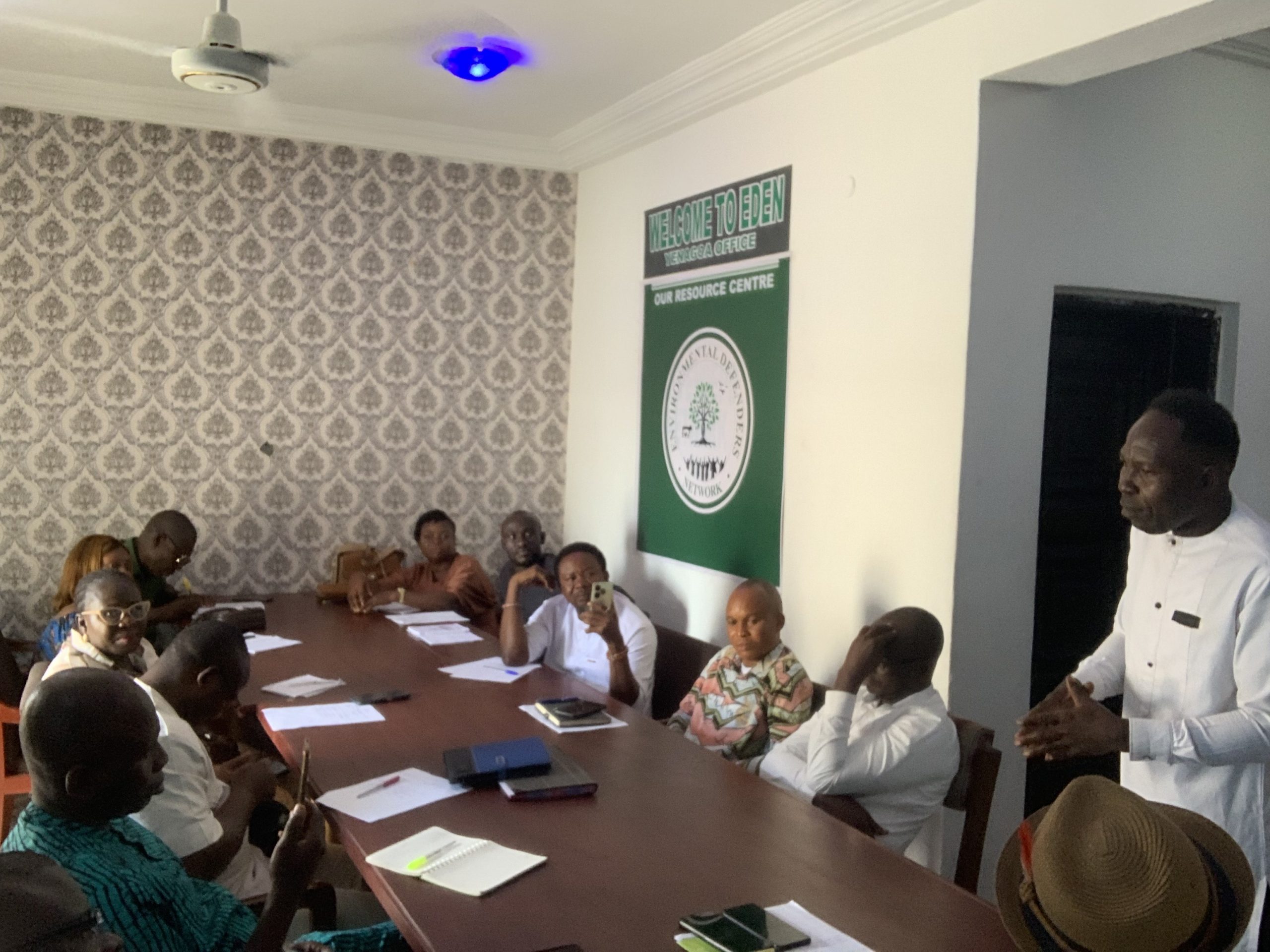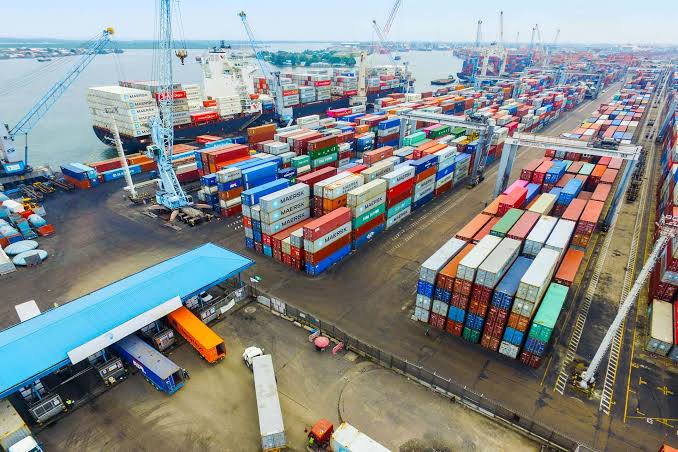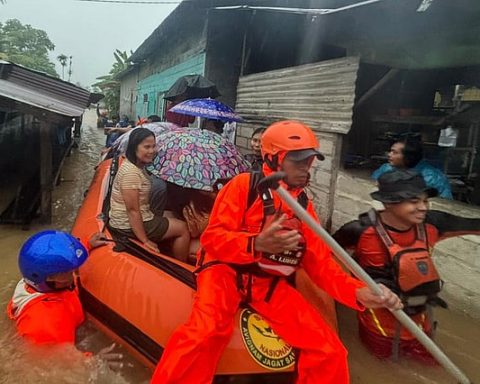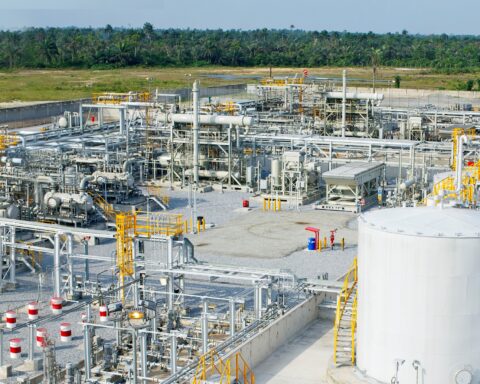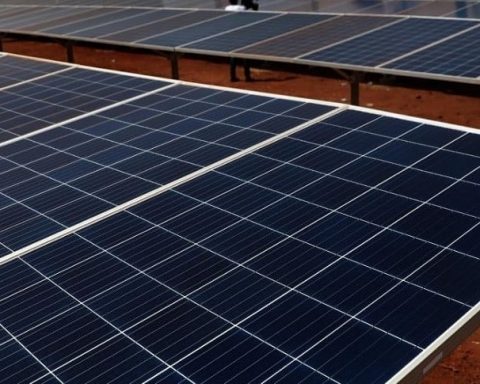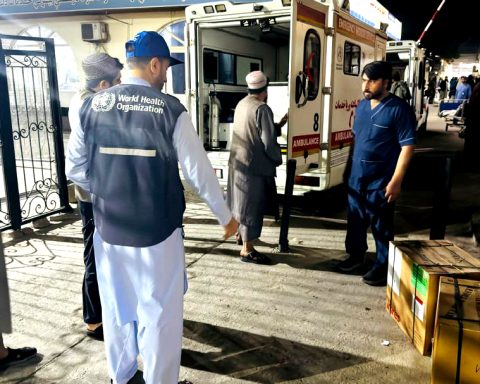From Nigeria’s Niger Delta community of Rivers, Delta, Bayelsa and Abia States came a strong warning to Shell and other multinational oil exploration companies planning to divest their investments in the area: “You can’t just leave without adequately compensating us for decades of oil polution and economic deprivation in communities.”
Stakeholders in the four states, therefore, called on all communities affected by oil pollution to band together to hold the multinational companies accountable for the environmental disasters caused by oil exploration, and to demand for reparations and compensation from divesting oil companies and their succeeding companies.
Join our WhatsApp ChannelIn a meeting of community representatives from Delta, Rivers, Bayelsa and Abia which held at the EDEN Resource Center in Yenagoa, Bayelsa State, the people resolved to create awareness by educating local communities on their rights, including how to hold Renaissance Africa Energy Holdings and other local oil companies accountable for the continuous pollution of the Niger Delta Region. According to them, this has become imperative in the face of divestment by Shell and other oil multinationals.
A statement, which the group made available to Prime Business Africa on Friday quoted the Deputy Executive Director of EDEN, Alagoa Morris who led the meeting, as saying that the interactions and shared experiences of affected communities were necessary in order to strategize on how to collectively confront the polluters. Morris described the divestment of Shell as a ploy to escape the consequences of decades of environmental and human rights abuses, while operating under the guise of local oil companies.
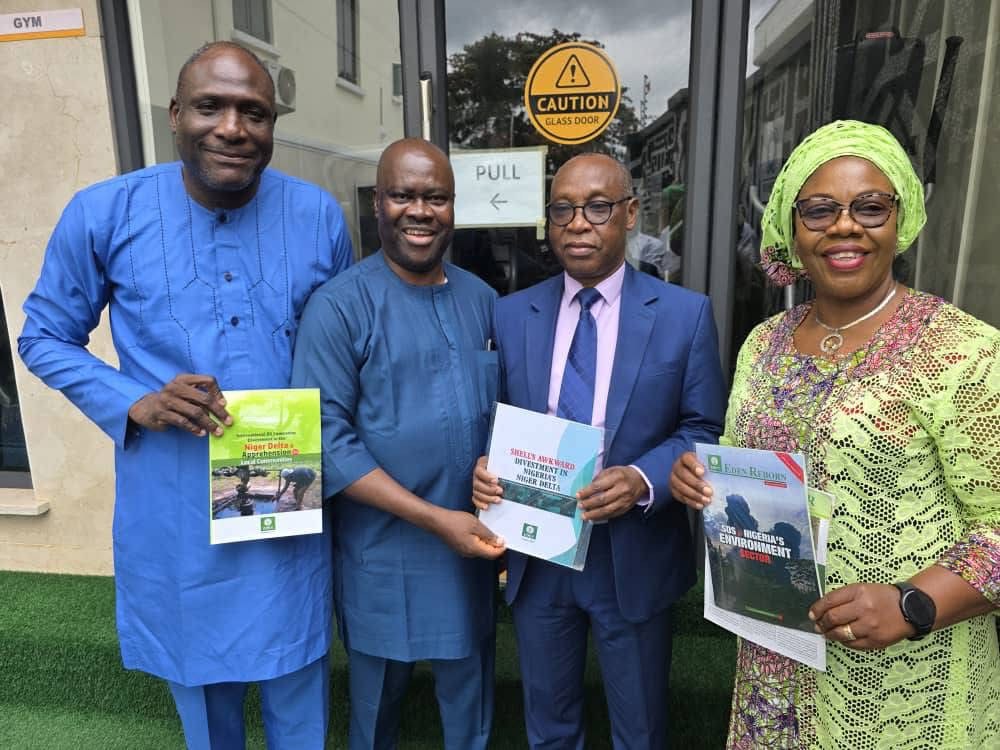
While sharing their experiences in their various communities, the issues of reoccurring oil spills, polluted lands and waters, low crop yields, health related issues, communal crisis and deaths, and lack of infrastructural development were the testimonies of all the communities represented.They condemned the divestment of Shell and other companies, pointing out that rhetorical divestment was just a name change, while the operators and their operations remain the same.
They lamented that the communities have become helpless in these dire situations, as intimidation and divide-and-rule tactics have been employed by these companies to keep the communities suppressed and silenced.
EDEN’s Program Manager on Women and Gender, Keziah Okpojo spoke on the importance of women inclusion in climate and environmental justice system, not just to complete protest numbers but to also participate in decision making and advocacy efforts towards seeking justice and accountability. Comrades Akpotu Ziworitin and Comrade Sabastan Kpalaap highlighted the Human and Environmental rights of the people and the need to continue to speak up to uphold these rights and ensure accountability from oil companies.
Media and Communication Manager of EDEN, Elvira Jordan spoke on the role of Social Media in environmental advocacy, and how communities can utilize the internet to expose the injustices of the oil and gas sector, as social media provides a wide opportunity to reach the oil companies, government regulatory agencies, civil society organizations, human rights advocates and other stakeholders.
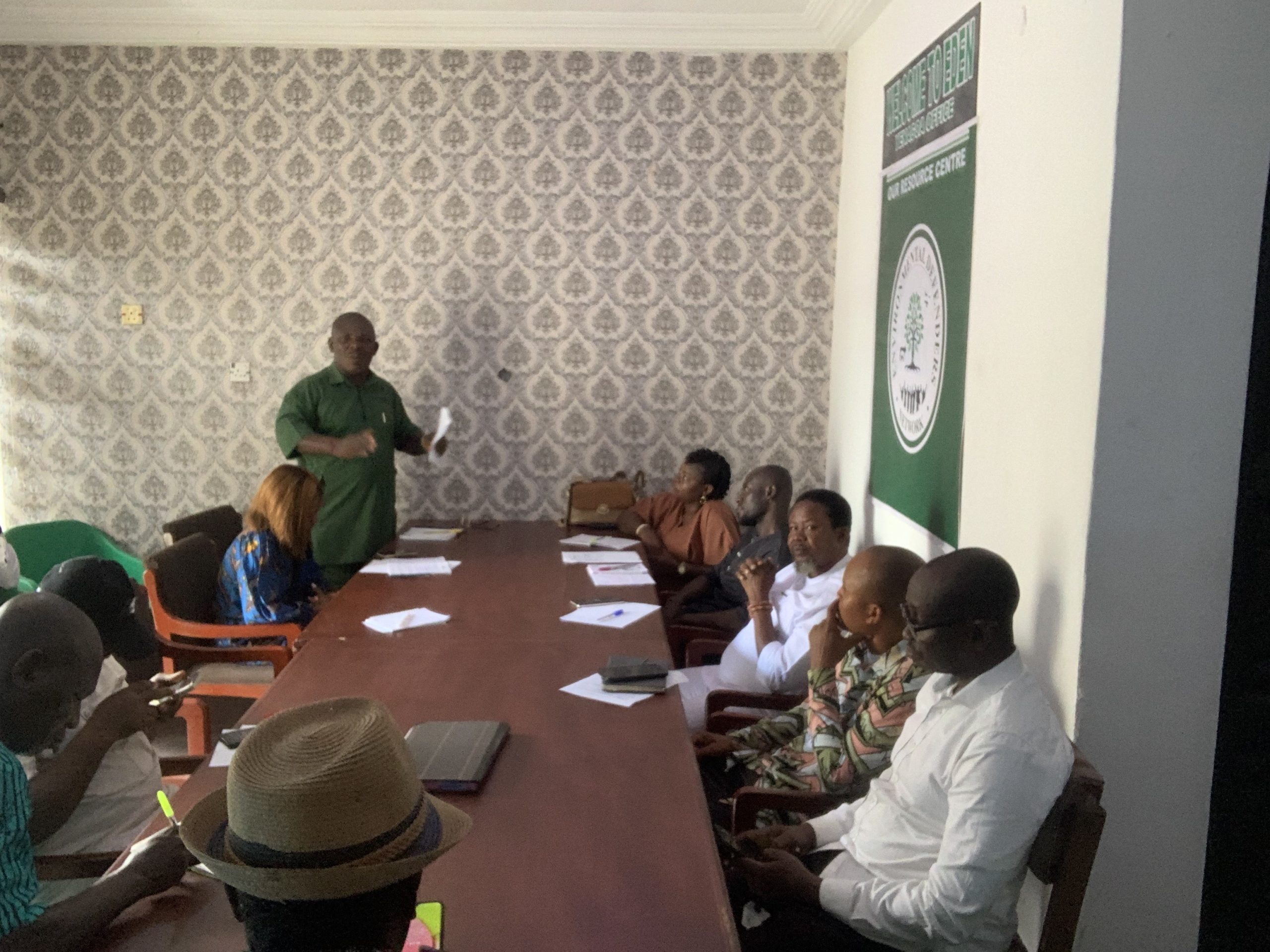
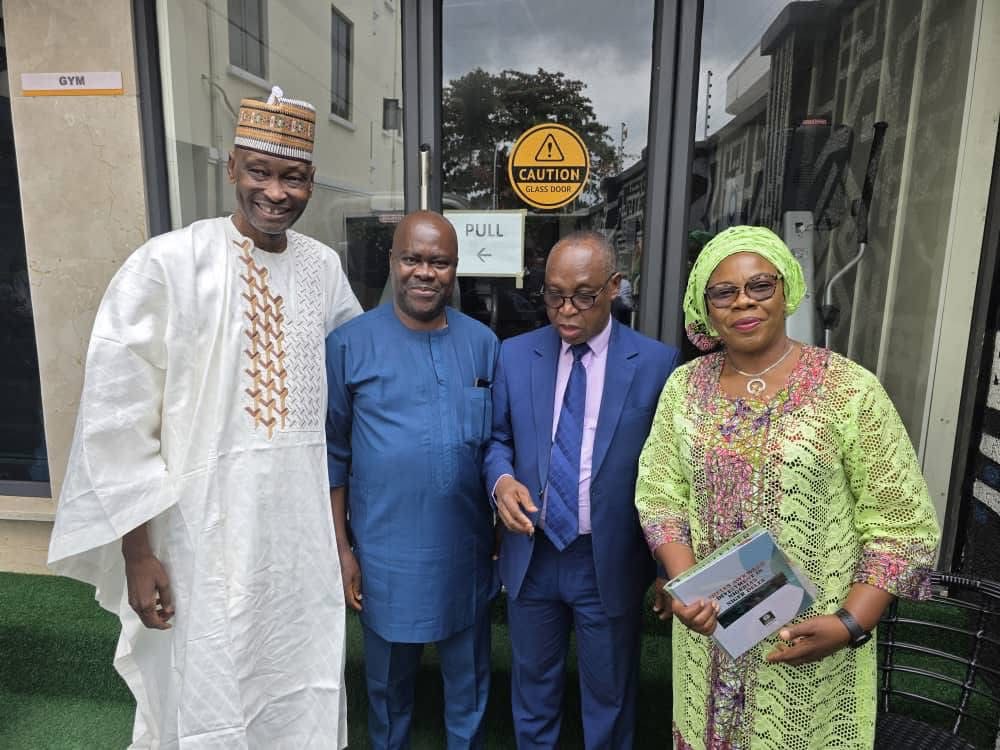
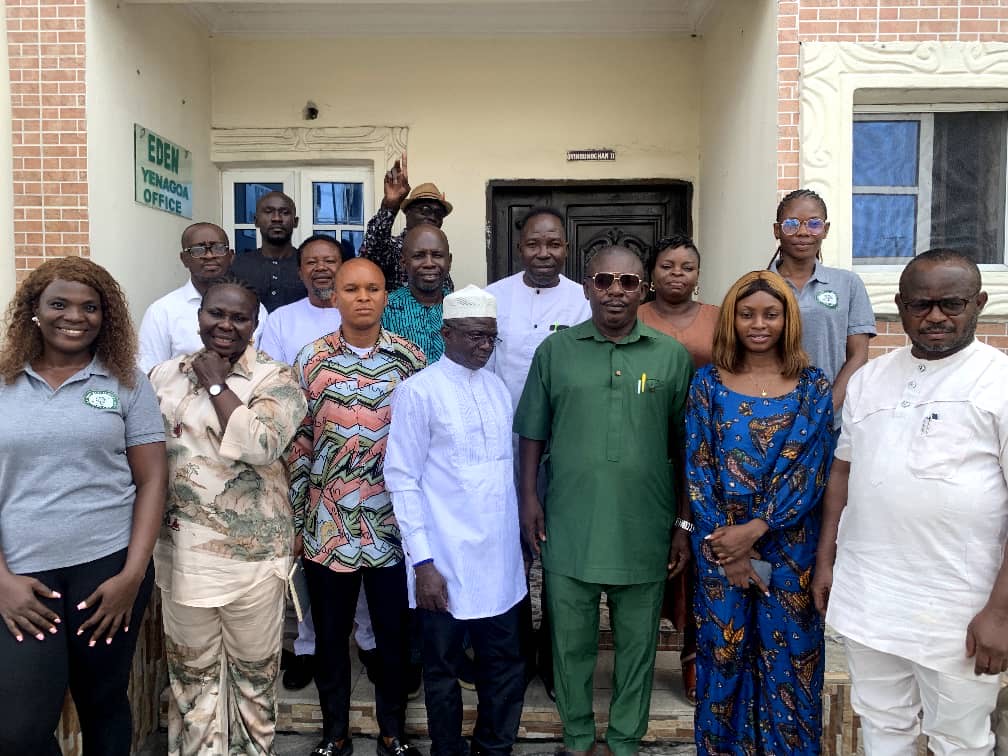
While presenting their testimonies, Ngbar Lezin, who represented Korokoro Community in Tai LGA of Rivers State lamented that after decades of pollution by Shell, they have neglected the need to carry out a health audit of the people in the community, and a responsive medical care to cater for the multiple issues of stroke, miscarriages, early menopause and blindness that has swept across the community.
“Shell has been operating in our land since 1958 till today with nothing to show for it.Women from the age of 20-30 are experiencing early menopause, and other health challenges. There is a widespread issue of blindness due to the continuous flaring of gas. Since the beginning of oil and gas exploration and the complaints of the community on the health hazards, no health audit has ever been done in the community. Livelihood has been greatly affected. Some of our crops like the popular Ogoni yam are no longer growing in our land. We don’t have a good school for our children. Our women and girls have to trek for long distance before they can get water, Some of them are raped and harassed on the way. Peace is now a story of the past in our community due to the divide and rule system. We have 2 chiefs and 2 youth leaders in our community now. Due to the continuous crisis, all projects in the community have been put on hold. From 1958 till now, we cannot point to one Shell retiree from our community. They don’t even employ our people as casual staff. Now Shell wants to divest and leave us like that without repairing the damages they have caused.
READ ALSO: Shell Acquires 12.5% Stake In Bonga Field From TotalEnergies For $510m
Renaissance Fully Takes Over Shell’s $2.4bn Onshore Asset In Nigeria
Okala Precious from Elebele Community in Bayelsa State stated that the oil and gas experience of his community has been really bitter. He pointed out that despite the continous destruction of livelihoods and the near extinction of aquatic life, the succeeding company took over without any information to the people, except for a letter to one of the biggest families in the community to announce their coming.
“The company keeps tapping our resources without an equivalent dividend to show. Our environment is highly polluted. We’re experiencing health issues like stroke even among young people. Aquatic lives have been washed off, our fishes are gone, and our soil is no longer fertile. Certain crops such as Cocoyam have gone into extinction due to environmental pollution. Our youths are not employed or engaged by any of these companies. The only thing that gave us joy was our power supply but we are experiencing a decommissioning of which the generating set went bad a year ago. Even the Petroleum Industry Act (PIA) which is supposed to protect the community, prohibits us from protesting against the injustice we are experiencing.”
Representative from Abia State, Nelson Nwafor, decried the attitude of the companies to the people, as they have closed every window of dialogue by intimidating the community folks with security agencies. “Our stories of pollution and environmental degradation are the same with other oil producing communities. Accessing these companies for a dialogue have become very difficult. The use security men and armed forces to intimidate the people, especially the youths when they speak up. When there is a spill, they use the divide and rule system to make sure that we do not speak up on what is right. We should strategize on how to engage these companies together, to demand accountability.”
On his part, Jonah Gbemre from Iwherekan/ Otu-jeremi community in Delta State highlighted how even the justice system has failed the host communities, citing the landmark judgement that was given to his community in 2002 to end gas flaring. According to him, this judgement has not been acted upon 23 years later. He added that communities need to work together in the fight for justice and accountability.
“My community is an evidence of how much the system is against the communities. Despite our court case with Shell which got a landmark judgement, there hasn’t been any changes yet. Instead, the gas flaring points in our community have increased over the years. The health challenges in our community are numerous. Since we have tried as an individual community to seek justice and it hasn’t worked, we need to come together as a force, just like the 3 farmers that won a case against Shell, and fight these oil multinationals together.
Meanwhile, Environmental Defenders Network, under the Global Greengrants Funds(GGF) carried out a robust research on the impact of the operations of Shell Petroleum Development Company in Akwa Ibom, Abia, Bayelsa, Delta and Rivers State, following the divestment of Shell, which involves the transfer of ownership of equity holdings to indigenous companies. The findings of this research was compiled into a document titled “Shell’s Awkward Divestment In Nigeria’s Niger Delta”. This document serves as an advocacy material to guide the relevant bodies and agencies on how best to ensure that host communities are not shortchanged and plunged further into more environmental degradation through the divestment process.
The Executive Director of EDEN, Barr. Chima Williams took the advocacy efforts to the Nigeria Extractive Industries Transparency Initiative (NEITI), presenting the document to key stakeholders at NEITI including Dr. Orji Ogbonnaya Orji (Executive Secretary), Mrs. Obiageli Onuora (Director of Communication), Comr. Kola Banwo (former CSOs Representative on the NEITI Board), and Dr. Mustapha Mohammed (National Coordinator, Publish What You Pay).
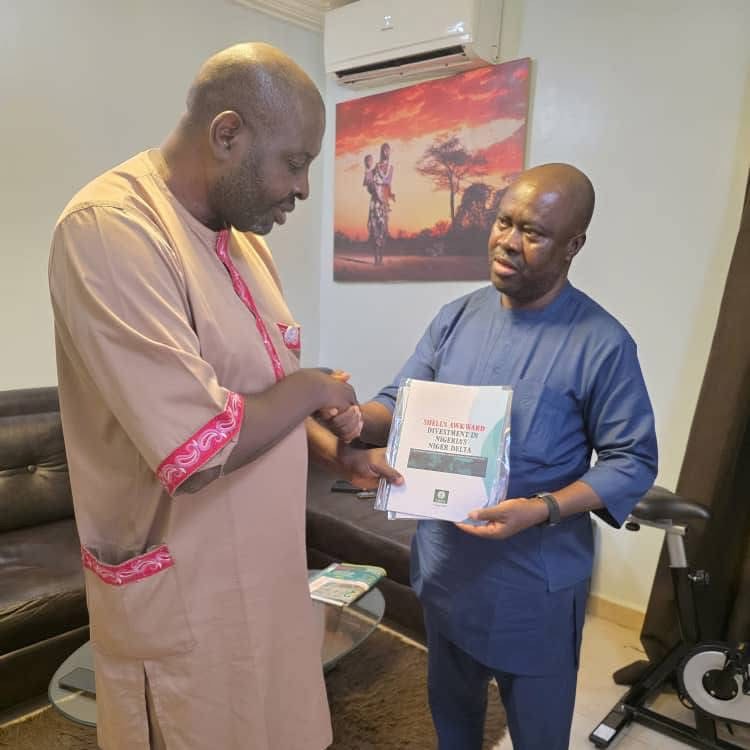
Barr. Williams also presented the publications to key stakeholders at the Environmental Management Disaster Risk Reduction Institute (EMDRRI), connecting with the President and CEO of Stephen Ogboli, and also the Federal Ministry of Environment and the National Oil Spill Detection and Remediation Agency.
These engagements were meant to advance transparency, accountability, and stronger environmental governance for the common people of oil bearing communities, in the face of divestment plans.


